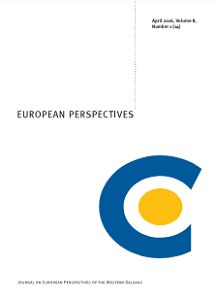Challenges of Multilateral Regional Security and Defence Cooperation in South East Europe
Challenges of Multilateral Regional Security and Defence Cooperation in South East Europe
Author(s): Iztok PrezeljSubject(s): Politics, Regional Geography, International relations/trade, Security and defense
Published by: IFIMES Mednarodni inštitut za bližnjevzhodne in balkanske študije
Keywords: South East Europe; Western Balkans; multilateral security and defence cooperation; region; initiatives; Regional Cooperation Council;
Summary/Abstract: Regional security and defence cooperation in South East Europe (SEE) has become increasingly important since the end of major armed conflicts. The first wave of such initiatives was established in 1996 after the war ended in Bosnia and Herzegovina (e.g. SEECP, SECI and SEDM), while the second wave led to the establishment of the Stability Pact for South East Europe, presently the Regional Cooperation Council (RCC), and many others after the war in Kosovo and democratic changes in Croatia and Serbia. Multilateral cooperative initiatives have played a relevant role in reconnecting the region in many areas and preventing further wars or related deterioration of security. I argue in this paper that South East Europe has not faced a lack of multilateral security or defence cooperation in the past 10 years, but a problem of the efficiency of the regional initiatives. The paper first maps the network of regional initiatives and then addresses several related challenges that hinder efficiency in regional cooperation, such as the changed problem of regional ownership, the lack of a regional identity, the escape syndrome and related distorted perception of regional cooperation, the problem of artificiality and superficiality of certain regional initiatives and the lack of a coherent approach to regional cooperation.
Journal: International scientific journal European Perspectives
- Issue Year: 5/2013
- Issue No: 2 (9)
- Page Range: 83-112
- Page Count: 20
- Language: English

